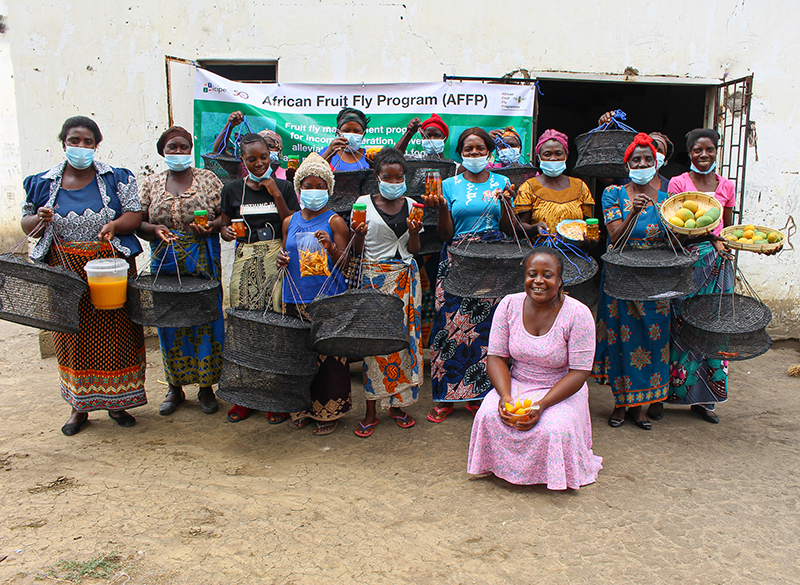Alien invasive fruit flies in Southern Africa: Implementation of a sustainable IPM programme to combat their menaces

Southern Africa (excluding South Africa) has great potential in horticulture production particularly fruits and vegetables but suffers huge losses in yield quality and quantity due to the fruit flies menace. For example, in Zambia, an estimated US$22.4 million worth of export earnings are lost every year due to fruit flies, while Zimbabwe loses approximately 50% of its total mango production estimated at 400,000 metric tonnes annually. At the height of the incursion by the invasive fruit fly Bactrocera dorsalis into Southern Africa, Mozambique lost its export market to South Africa, valued at US$20 million per annum when authorities pulled a plug on fresh produce emanating from the Southeastern African country. In this regard, the current International Development Research Centre (IDRC) and he Australian Centre for International Agricultural Research (ACIAR) funded initiative seeks to improve food security, nutrition, income generation opportunities, and to reduce poverty of small- and medium-scale mango growers as well as other actors along the mango value chain, with specific focus on women and youth, through implementation of sustainable management of fruit flies and capacity building. This is being achieved through the implementation of a holistic scientifically proven fruit fly IPM package developed by icipe and partners which has been shown to reduce fruit fly infestation by more than 80% if used correctly and consistently. The IPM package has the advantage of reducing usage of broad-spectrum synthetic insecticides by 74% thus ameliorating negative human and environmental health effects by 23-35% and boosting mango revenues by 60%. The initiative goes beyond direct management of fruit flies into seeking to understand elements of women’s empowerment and disempowerment by using the Project-level Women's Empowerment in Agriculture Index (pro-WEAI). Using data on various aspects of the three major agencies of the (pro-WEAI) instrument ie. Intrinsic, instrumental, and collective agency, the project will implement gender transformative actions at the level of training as the building block to future gender focused interventions. In addition, as a response to unforeseen risk, resulting from the COVID-19 pandemic, the project is implementing value addition through the promotion and implementation of mango and vegetable drying in the four target countries. This improves household nutrition and income and builds resilience in the face of the pandemic.
Donors
- International Development Research Centre
- Australian Centre for International Agricultural Research
Partners in the project
- International Centre of Insect Physiology and Ecology (icipe) (Kenya)
- Department of Agricultural Research Services (DARS) (Malawi)
- Eduardo Mondlane University (EMU) (Mozambique)
- Zambia Agriculture Research Institute (ZARI) (Zambia)
- Department of Research and Specialist Services (DR&SS) (Zimbabwe)
Project Visibility Materials
-
Project Achievements
-
Gender Mainstreaming
-
Fruit Fly IPM Guide
-
Project banners
-
Photo Gallery

